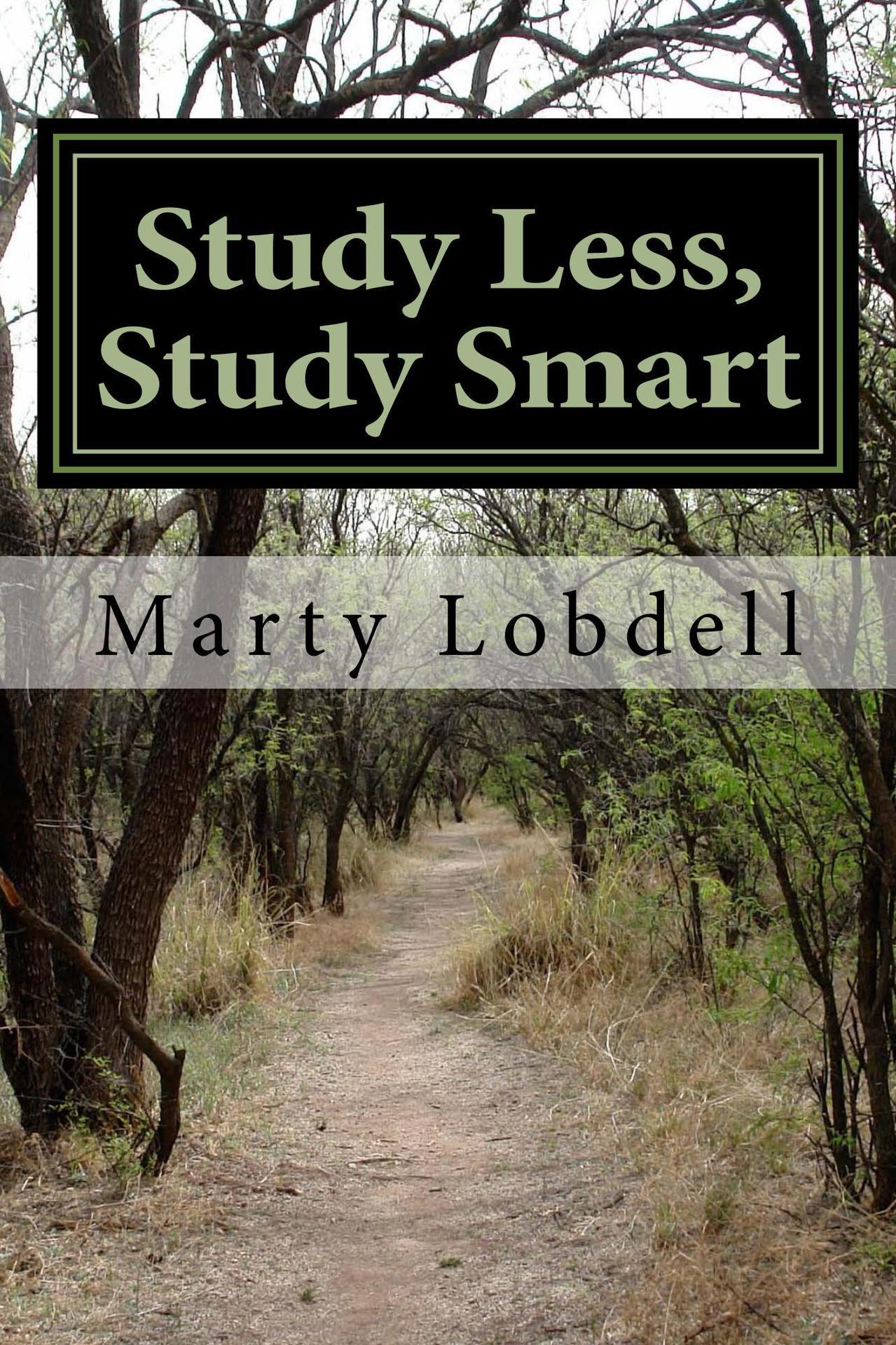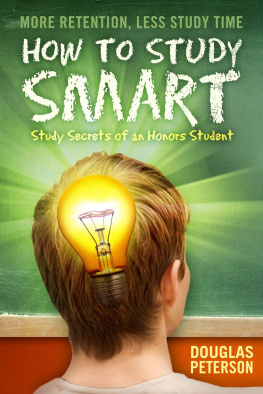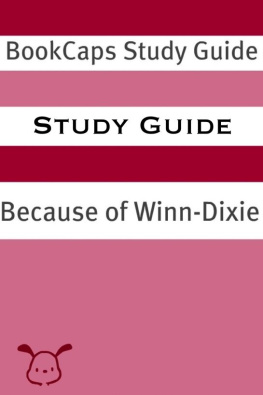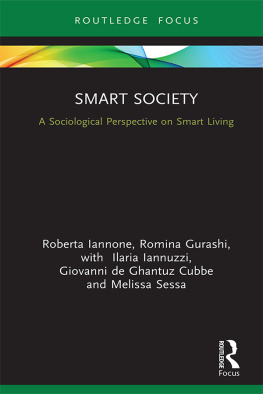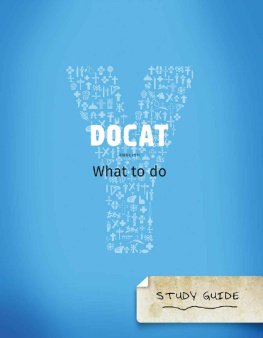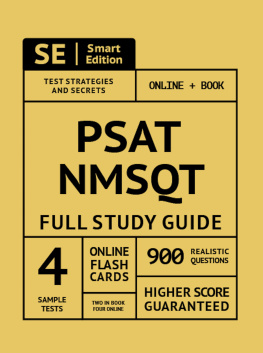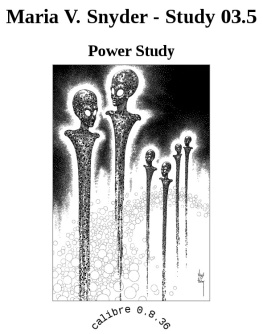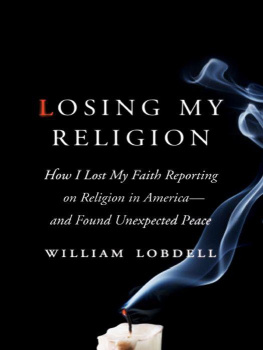Study Less, Study Smart
A guide to effective study techniques and enhanced learning.
By
Marty Lobdell
Table of Contents
Page
Introduction 5
How long can you study effectively? 7
Reinforce your study habits. 9
Create or use a study area 11
Learning mindfulness 13
Discovering the meaning 15
Deeper Processing 17
Mnemonics 19
SQ4R 23
Note taking 25
Underlining, may hurt your efforts 27
Regular Attendance 29
Study group 31
Get enough sleep 33
Conclusion 35
Introduction
I taught college success at Pierce College for nearly 20 of my 40 years at the college. I often opened the quarter by asking students, How do you go about learning something? They usually answered that they would read it over, and over, and over until they memorized it.
This taught me something: most students dont know how to effectively learn school material. This is not their fault; most students have not been taught how to study. They have most likely been told to read it until they know it. They have also been told to spend more time studying and they will be an effective learner. Seat time is important for learning, but seat time that is not effective is a frustrating waste of time.
I also realized that students confused memorization with grasping or understanding what they studied. This was not surprising since much of elementary school involved rote memorization rather than understanding concepts.
The following strategies are research based rather than someones opinion or belief. I have received a large number of responses from students who have applied my suggestions and found they work. As I always said in class, I dont expect you to do everything I suggest; but, try a couple of strategies and when they work add to them.
Becoming an effective learner is an acquired skill. As with any skill, being a strong student takes coaching and practice. Trust me; you can learn to be a more effective student. The strategies in this book are meant for students from junior high to post-doctorate. The information is also highly relevant for learning material for ones career.
How long can you study effectively?
At the outset of my study skills lecture, I asked the students how long could they study effectively. The shortest time mentioned was five minutes, but the average matched what researchers have found. Most students lose concentration after 20 to 30 minutes of studying. I did have a man, who was visiting my classroom; say he could study for six hours with solid concentration. After class, I learned that he was finishing medical school. Clearly he had developed his study skills to a high level.
Even though most students can only study efficiently for about 20 to 30 minutes, many students push on for hours with little learning taking place. At this point, students learn to hate studying.
Reinforce your study behavior
My first rule : when you feel that you are not learning efficiently , take a break and reinforce your prior studying behavior . To continue trying to study, if you are not learning efficiently, actually punishes your attempt to study. You feel bored, listless and discouraged which makes you less likely to want to study in the future.
Here are some suggested reinforcements. You could: take a five minute break and enjoy some coffee, soft drink; call or text a friend; do some calisthenics; listen to a favorite piece of music; have a snack.
The point is to do something that you like and tell yourself that it is a treat for studying well. It is interesting that a five minute break will allow you to come back and study efficiently for another 20 or 30 minutes. It will then be time for another break and more reinforcement.
At the end of your study time, plan a bigger reinforcement, for example, watching a favorite program, going out for pizza, or taking a long shower. You make a treat for yourself and gradually studying becomes more enjoyable and productive.
You should also look for short opportunities to study. For example, if there is a dead time between classes, use it to study. The same goes for work breaks if you are employed, or time commuting on bus or rail. There are often several times during the day that you can spend a few minutes studying.
Use or create a study/library
Few of my students lived in homes with a study or library. There are school and public libraries, but they are sometimes inconvenient to access. So, I propose rule number 2 : create a study.
Why is this important? Many students try to study in places that are meant for other purposes. My students often studied in their bedrooms, sometime at a desk, sometimes in bed. The problems here, the student often finds taking a nap or going to bed over-rides studying. A second popular study spot is the kitchen table or bar. As you may have guessed, thoughts of eating or snacking often over-ride concentration. The third study spot is the den or living room. If the TV, or stereo is on, studying is unlikely to be effective.
Creating a study is fairly simple. Get a table lamp and attach a small sign that says, Study lamp. If you study at a desk in your room, use the lamp only while you are studying effectively. Do not use it for any other purpose or while taking a break. Studying in bed is a bad idea. The desire to sleep is too strong. If you study at the kitchen table or bar, remove all food related items and use your study lamp. If no one else is in the living room and all entertainment is off, use your study lamp. I have had numerous students tell me they need music to study by. If the music is truly background, then okay. But if you are singing to the tune or tapping your feet, or imagining the artist, then you are not fully concentrating on your studies and you need to turn the music off. No matter where you study, turn your cell phone off. Keep in mind you are doing focused studying and do not want interruptions.
When you get to a point where you need to take a break, turn the study lamp off and reinforce your good studying behavior. When youre ready to study again, turn the lamp back on. After a while, the study lamp becomes a cue to get focused on the material youre studying. Gradually, you should find that the length of time that you can remain focused will also increase. I have had some students say that they have come to like studying as a result of this technique.
If you have access to a library, use it. Libraries are designed to facilitate concentrated reading/studying. If the activities of others in the library cause you to lose concentration, find a study carrel that creates your own quiet space. Once again, you should take breaks and reinforce your studying.
Mindfulness
Have you ever noticed when you check the time and then someone asks what time is, and you say you dont know? The reason is simple; you were not trying to remember what time it was, you were only checking the time. Or have you noticed how few items you can recall after reading a newspaper or watching the news? Material that is remembered, when you are not trying to learn it, is called incidental learning. Incidental learning is inconsistent and meager compared to intentional learning.
Rule number 3 : you remember or learn best when you intend to learn the material. Intending to learn is a form of mindfulness. Every class you attend, every note you take, every text you read should be times where you think, I intend to learn this material. Exactly what changes at the brain level is unclear, but such mindfulness will impact your learning effectivity.

